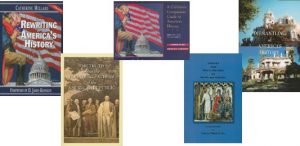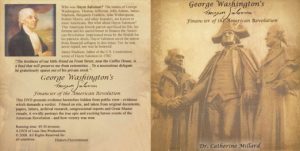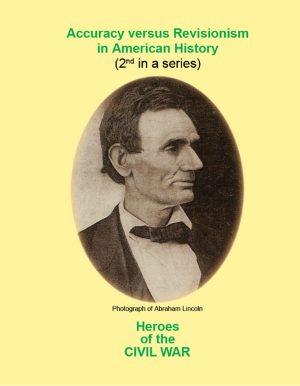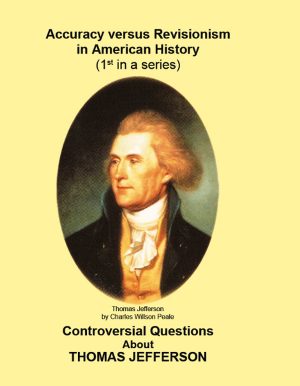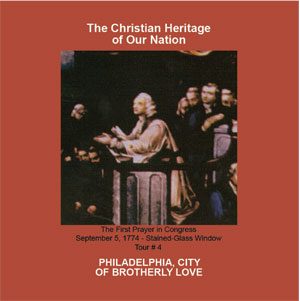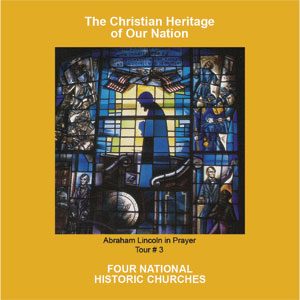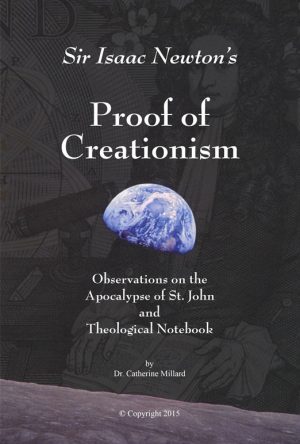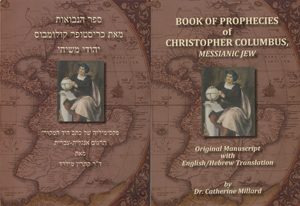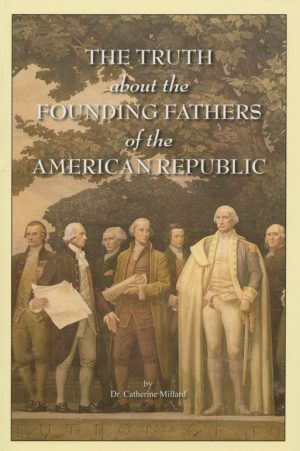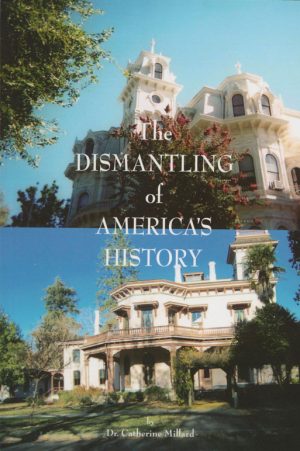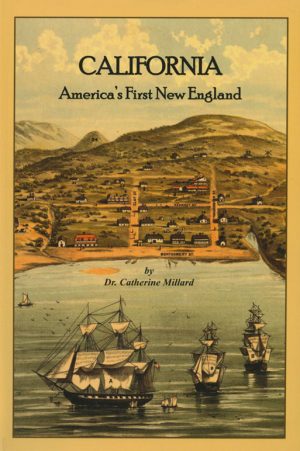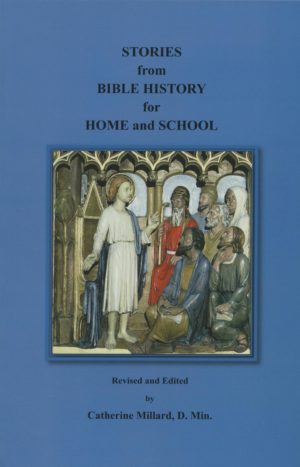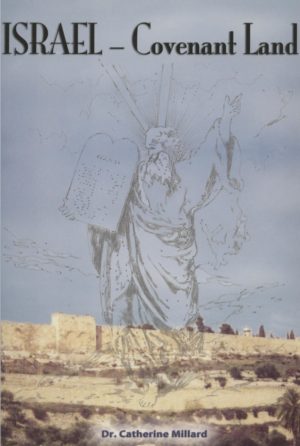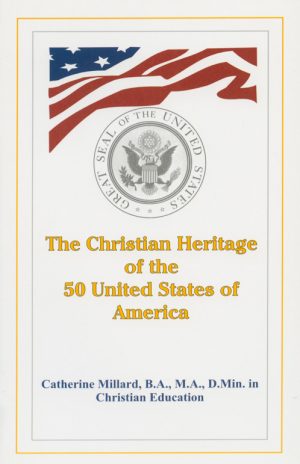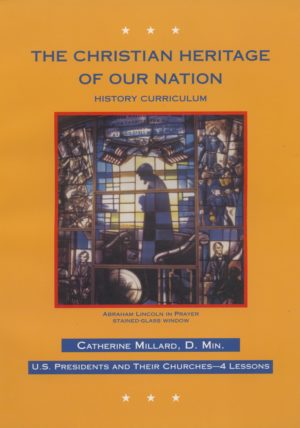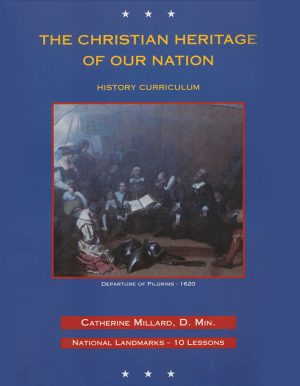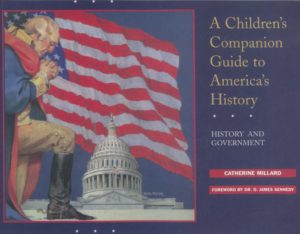Author’s Introduction:
The Meaning of “Catechism:” ‘A Handbook of Questions and Answers for Instruction, containing the fundamentals and principles of the Christian faith.’ Only two original copies of Samuel Stone’s Catechism, published in 1684, which nurtured children throughout New England, are known to exist.
Rev. Samuel Stone (1602-1663), Minister of the Gospel in Hartford, Connecticut was born in Hertford, England, receiving his M.A. from Emanuel College, Cambridge, in 1627. A Puritan lecturer to the church in Northhamptonshire, he was chosen as Assistant to Thomas Hooker, then preparing to set out for New England. Arriving in 1633, Hooker, (founder of Connecticut), became the Pastor of the church in New town, with Samuel Stone its Teacher. The church moved to a new settlement in 1636, naming Hartford after their Teacher’s birthplace. Reverend Stone was revered throughout New England as one of her most eminent divines and teachers of Scripture. This 1684 Catechism taught children throughout New England, preceding the New England Primer. Samuel Stone’s tombstone in Hartford bears this inscription:
“New England’s glory and her radiant Crown, was he who now on softest bed of down, Till glorious Resurrection morn appear, Doth safely, sweetly sleep in Jesus here. In Nature’s solid art, and reasoning well, ‘Tis known beyond compare he did excel, Errors corrupt by sinners’ dispute he did oppose and clearly did confute. Above all things he Christ his Lord preferred. Hartford thy richest Jewel’s here interred.”
A Short CATECHISM drawn out of the WORD of GOD
by Samuel Stone
Question:
What is Divinity or Religion?
Answer:
A Doctrine of living well. Gal. 2.19; It hes. 4.1; 2 Tim. 3.12; I Tim. 6.3. Isaiah 54.13.
Question:
What is it to live well?
Answer:
To will the good Will of God. Prov. 4:23 and 23:26; Psalm 90:12; Rom. 12:2.
Question:
Which are the parts of Divinity?
Answer:
Faith in God, and observance towards God. Psalm 37.3; I Tim.3:5, 9; II Tim 1.13.
Question:
What is faith in God?
Answer:
A confidence in trusting in the name of God for life. Psalm 9:10; Hosea 6:2, 3; Amos 5:4, 6. John 5:40 and 20:31.
Question:
What is the object of Faith, in whom we are to believe that we may live well?
Answer:
God, who is sufficient to make us live well, and the efficient cause of life. Exod. 6:3; Rom. 4:17, 21. 2 Cor. 9:8.
Question:
What is the Sufficiency of God?
Answer:
That whereby God having enough for Himself, has more than enough for us. Acts. 17: 25; Rom. 11:35; 2 Cor. 9:8; Eph. 2:20
Question:
Wherein consists the Sufficiency of God?
Answer:
In the Divine Essence, and Subsistence, or Persons. Matt. 28: 19; John 17: 3; I John 5: 7.
Question:
What is the Divine Essence?
Answer:
That whereby God is the most absolute first Being. Isaiah 41: 4; and 44: 6.
Question:
What is the first Being?
Answer:
An Infinite, Eternal Spirit, having Life in Himself, with a most blessed understanding and Will. Psalm 90: 1, 2; and 145: 3; and 147: 5; John 4: 24, and 5: 26. I Tim. 1:11.
Question:
What is the first Being?
Answer:
An Infinite, Eternal Spirit, having Life in Himself, with a most blessed understanding and Will. Psalm 90: 1, 2; and 145: 3; and 147: 5; John 4:24, and 5:26. I Tim. 1:11.
Question:
What is a Divine Person or Subsistence?
Answer:
The Godhead, with a Relative individual Property. Matt. 28: 19; Heb. 1: 3, 5.
Question:
How many are the Divine Persons of the Godhead?
Answer:
Three, God the Father, God the Son, and God the Holy Ghost. Matt. 28: 19; I John 5:7
Question:
What is God the Father?
Answer:
A Divine Person begetting the Son. Psalm 2:7; Proverbs 8: 22, 24, 25. Heb. 1: 3, 5.
Question:
What is God the Son?
Answer:
A Divine Person conceived or begotten of the Father. Proverbs 8: 24, 31.John 1:14. Heb. 1:3, 5.
Question:
What is God the Holy Ghost?
Answer:
A Divine Person, proceeding from the Father and the Son. Isaiah 63: 10; John 14: 26 and 15: 26.
Question:
What is the Efficiency of God?
Answer:
That whereby the Almighty works all in all, according to His ancient Decree. Psalm 93:1-2; Isaiah 25:1; Rom. 11:36; I Cor 12: 6; 2 Cor. 6:18.
Question:
What are the kinds of Efficiency, or the works of God?
Answer:
Creation and Providence. Nehemiah 9:6; Psalm 104.
Question:
What is Creation?
Answer:
That whereby God made the world of nothing very good in six days. Gen. 1; Acts 17:24-30.
Question:
Why was man made the last of all, upon the sixth day?
Answer:
Because man was to be served by the inferior creatures, and attended by the angels. Gen. 1:26 to the end; Job 37:7; Hosea 2:21, 22. Heb. 1: 14; Jude 6.
Question:
What is the Creation of man?
Answer:
That whereby God made him a reasonable, living Creature. Gen. 2: 7; Job 35: 11; Psalm 91: 10.
Question:
What are the parts of which man was made?
Answer:
A body made of the Earth, and a reasonable immortal Soul, which is made immediately of nothing. Gen. 2: 7; Job 10: 8-13; Heb. 12: 9.
Question:
What is the reasonable immortal Soul?
Answer:
A Spirit of life with a faculty of Reason and Will whereby a man is become a cause by counsel. Deut. 30: 19; Gen. 2:7; Proverbs 16:9; and 20:27; Matt. 16: 26. Heb. 8:10.
Question:
What is the special perfection in which man was created?
Answer:
The Image of God, whereby he was able to please God in a perfect manner. Gen. 1:16 to the end; Ecclesiastes 7:29.
Question:
What is the Providence of God?
Answer:
His exact watch over all His Creatures, whereby they are preserved and guided to their end. IChron. 29: 11, 12. Nehemiah 9:6; Psalm 104; and 145: 15, 16. Isaiah 6:3. Matt. 10: 29, 30, 31.
Question:
What is the special government of God over His reasonable Creatures?
Answer:
That whereby God leads them to an eternal estate of happiness or misery by His being pleased or displeased. Gen. 3:22; Matt. 25: 46; Rom. 10: 5.
Question:
What is here to be considered?
Answer:
Man’s Apostasy and Restitution. Gen. 3; Rom 5: 12.
Question:
What are we to believe concerning man’s Apostasy or fall from obedience to that government?
Answer:
All men by nature being condemned through Adam’s transgression, are wholly infected with sin, and under the dominion of death. Gen. 3: 1 to the end, and 5:3; Psalm 51:5; John 3:6; 18-36; Rom. 12:15-20; Eph. 2: 1-3.
Question:
What is sin?
Answer:
The transgression of the Law, or any swerving from the Law of God. Dan. 9: 5-12; I John 3: 4.
Question:
Which are the kinds of sin?
Answer:
Original, which is the swerving of man’s Nature, or Actual,which is the swerving of his actions from that rules. Psalm 14: 1,2, 3. Jer. 6: 7.Matt. 12: 35 and 15:19.
Question:
What is that death which is entered into the world by sin?
Answer:
A miserable privation or loss of the life of joy or comfort. Gen. 2:17; I Sam. 25:37; Rom. 5:17 and 6:23.
Question:
What is the first death?
Answer:
The death of the outward man especially; the perfection of which is the separation of soul and body Gen. 35:18; Deut .28: 15-27.
Question:
What is the second death?
Answer:
The death of the in ward man especially; the perfection of which is the ejection of the whole man from God into hell. Isaiah 33: 14; Matt. 25: 41-46, and 13: 41, 42.
Question:
Wherein consists the Restitution of man?
Answer:
In Redemption and Application. John 3:5 and 3: 14-19, and 6:27; 62, 63; Eph. 1: 4-11.
Question:
What is Redemption?
Answer:
The payment of a due price to Divine Justice, for His freedom of man. Matt. 20: 28; Acts 20: 28; Rom. 3: 24, 27; I Cor. 6:20; I Peter 1: 18, 19.
Question:
Who is the Redeemer of man?
Answer:
Jesus Christ God-man. Matt. 1: 23; Acts 20: 28; I Tim. 3: 16.
Question:
Why is the Redeemer called Jesus Christ?
Answer:
Because He is our Savior and anointed Mediator; Priest, Prophet and King. Matt. 1:23; Luke 4: 18, 19; Acts 4: 27; Heb. 1:9 and 7:1.
Question:
What is the Union of those two distinct Natures of Christ?
Answer:
That whereby the second person in the Godhead takes the human Nature to subsist forever in his own person. John 1: 14; I Cor.; 8: 6; Galatians 4: 4, 5; Heb. 1:6.
Question:
Wherein consists he Redemption of Christ?
Answer:
In His Humiliation and Exaltation. Phil. 2:6-11; Luke 24: 26.
Question:
What is the Humiliation of Christ?
Answer:
Subjection to the Law in His active and passive obedience. Dan. 9: 24; Matt. 3: 15, 17. Rom. 10: 5; Gal. 3: 13 and 4: 4; Heb. 7:22.
Question:
What is the brief sum of the life of Christ?
Answer:
Christ being conceived by the Holy Ghost, and born of the Virgin Mary, kept the charge of the Lord performing His Will in a most perfect manner. Matt. 1: 18; Luke 1: 35; John 8: 29 Heb. 10: 5-10.
Question:
What kind of death did Christ suffer?
Answer:
The first and second death which were both finished upon the cross. Isaiah 53: 9; Gal. 3: 13; Phil. 2: 8.
Question:
Which are the Decrees of His Exaltation
Answer:
His resurrection, ascension into Heaven, sitting at the right hand of God; and return to judge the quick and the dead. Mark 16: 19; Rom. 8: 34; II Tim 4: 1.
Question:
What is the Application of that Redemption or Purchase?
Answer:
That whereby it is extended to the Church or Seed of Christ, through the irresistible power of the Spirit in the Word. Isaiah 53: 10 and 59:21; John 16: 7, 8; Acts 26: 18, 20, 28; Eph. 5: 23.
Question:
What is the brief sum of Application?
Answer:
A contrite and humble sinner, trusting in Christ for life, is justified before God, and also sanctified and blessed. Isaiah 57: 14; Matt. 5:3-9; John 12: 13 and 3:6; I Cor. 1: 30 and 6:11; Gal. 2: 19, 20.
Question:
What is contrite or brokenness of heart?
Answer:
The cutting off the heart from sin, by a sight of it, as the greatest evil, and a sorrow for it. John 16: 8; Acts 2: 37; Rom. 11:24
Question:
How may it appear that sin is the greatest evil?
Answer:
Because it is most cross to God, and separates from Him, who is the end and chief good of the soul. Psalm 73: 25 to the end; Isaiah 43: 7-21 and 59:2.
Question:
Why can there be no separation from sin without godly sorrow for it?
Answer:
Because no man will forsake his sin so long as it is the sweetest object to him. Job 20: 11, 12, 13. Ecclesiastes 7:26; James 4: 8, 9.
Question:
How may it appear to a man that his sorrow is a godly sorrow?
Answer:
When the heart tastes thegreatest bitterness in sin, and the greatest sweetness in Christ. Ecclesiastes 7:26; Mala chi 3: 1; Matt. 13: 44.
Question:
When is the heart of a man broken off from sin?
Answer:
When he is willing to see that truth which is most cross to his beloved sin, and that God should take it away by any means. Hosea 14: 2; John 3: 20, 21.
Question:
What is Humiliation?
Answer:
That whereby the sinner is cut off from resting within the compass of himself, or his own perfection. Matt. 16:24; Rom. 2:17 to 21. Gal. 2: 19, 20.
Question:
Wherein consists his Humiliation?
Answer:
In self-despair, and self-subjection. Hosea 14: 3; Luke 15: 17, 18, 19.
Question:
Which is the first part of this self-despair?
Answer:
That whereby the sinner refuses to rest in the shadow of the best duties, as utterly unable to answer the Law. Isaiah 64: 6; Matt. 3:9 and 5:3; Gal. 3:10; Phil. 3:3.
Question:
What is the second part of self-despair in a humble sinner?
Answer:
A distrust in his own legs, finding no strength in himself to move or go one step towards a Savior. Psalm 61: 2; Jer. 31: 18; John 16: 8, 9.
Question:
What is the self-subjection of a sinner?
Answer:
Submission to the disposing hand of Christ, to be at the carving, and to be molded and acted by Him. Jer. 31: 18; Luke 15: 17; Rom. 6:7.
Question:
How does God draw the heart to believe in Christ, or trust in Him for life?
Answer:
By His Spirit in the promise, darting in the special light and sweetness of the boundless riches of His grace in Christ. Isaiah 43:1; John 6: 44, 45; Rom. 10: 14-18; II Cor. 4:6.
Question:
What is the justification of a Believer?
Answer:
That whereby the righteousness of Christ being imputed to him, he is pronounced righteous and worthy of life. Rom. 6: 7,8 and 5: 18,19; II Cor. 5: 21; Phil. 3: 9.
Question:
What is the righteousness of Christ?
Answer:
His active and passive obedience. Heb. 10: 7-11; Phil. 2: 8; I Peter 3: 18; I John 2: 2.
Question:
What is the imputation of the righteousness of Christ?
Answer:
The putting of the Righteousness upon the reckoning and account of a Believer. Rom. 4: 6 and 5: 18, 19; II Cor. 5: 21.
Question:
What is the Sanctification of a Believer?
Answer:
A change or transformation into the glorious image of Christ, whereby he is fitted for every good work. II Cor. 3: 18; I Thess.5: 23; II Tim. 2: 21.
Question:
When shall the Saints be perfectly blessed?
Answer:
In soul at the point of death, and in the whole man, at the Resurrection at the last Judgment; when the wicked shall be damned with Devils forever. Matt. 25: 31 to the end; I Cor. 13: 12 and 15: 22; Rev. 14: 13.
Question:
What is obedience towards God?
Answer:
The performance of duty to God, by a Spirit of Faith. Matt. 28: 20; II Cor. 4: 13; Gal. 2: 19-20.
Question:
Wherein consists Observance towards God?
Answer:
In Obedience of the Law and the helps of Obedience, which are Invocation of God, and celebration of Sacraments. Psalm 50: 15; Matt, 28: 19-20; James 1: 5.
Question:
What is Obedience to the Law?
Answer:
That respect to the Law, whereby a man closes with the infinite fullness of goodness of God, or with goodness itself. Deut. 6: 4-15; Psalm 73: 25 and 119:6; Matt. 9: 17.
Question:
Wherein consists Obedience to the Law?
Answer:
In the duty of Divine Worship and Righteousness. Matt. 22: 37, 38, 39; Luke 1: 74-75; Exodus 31: 18.
Question:
What is the Divine Worship required in the first Table of the Law?
Answer:
That whereby we embrace God for Himself, and His goodness. Psalm 73: 25; Matt. 19: 17.
Question:
Which are the several duties of Divine Worship required in the four Commandments of the first Table?
Answer:
1. Embracing the true God alone as our satisfying object. 2. In all His Divine Ordinance. 3. In a Reverent. 4. In a Solemn manner. Exodus 20:1-12; Matt. 22: 37-38.
Question:
What is that Righteousness which is required in the second Table of the Law?
Answer:
That whereby a man loving himself in God and for His sake, loves his neighbor as himself. Matt. 22:39; Rom. 13: 39; Rom.13: 8, 9, 10.
Question:
Which are the duties of love to our neighbor, required in the sixth Commandment of the second Table?
Answer:
The due preservation of His Decree, life chastity, good, name and prosperity. Exodus 20: 12-18; Rom. 13: 8, 9, 10.
Question:
What is the Invocation of God?
Answer:
A going to God, whereby we move Him with things according to His Will. Gen. 18: 23, 27, 28, 32. Psalm 50: 15; Mark 6: 9-14; Luke 11: 5-14.
Question:
What is a Sacrament?
Answer:
A sign and seal of the Covenant between God and His people. Gen. 17: 7, 15; Exodus 12: 3; Luke 22: 19, 20.
Question:
Which are the parts of a Sacrament?
Answer:
The sign and the thing signified. Matt. 3: 11, 16 and 26: 26-29.
Question:
How many Sacraments are there in the NEW TESTAMENT?
Answer:
Only two, Baptism, and the Lord’s Supper: both of which must be dispensed by the Ministers of the Word. Matt. 26: 26-29 and 28: 18-19; I Cor. 1:16.
Question:
What is Baptism?
Answer:
A Seal of admission into Covenant with God and His Church, and incorporation into Christ, which is the portion of all Church members. Matt. 28: 19; I Cor. 12: 13; Acts 2:39; Col. 2: 11, 12, 13.
Question:
What is the sign in Baptism?
Answer:
The washing the flesh with water, in the name of the Father, Son, and Holy Ghost. Acts 2: 38.
Question:
What is the special thing signified?
Answer:
The blood of Christ shed for us, whereby we are washed from sin, and saved. Mark 16: 16; Acts 2: 38 and 22: 16; I Peter 3: 21; Col. 3: 11, 12, 13.
Question:
What is the Lord’s Supper?
Answer:
The seal of our continuance in Covenant with God, and His Church, and growing up in Christ. Matt. 26: 26; I Cor. 11: 20-30.
Question:
What is the sign?
Answer:
Bread and wine duly applied according to the institution of Christ. Matt. 26:26-29; I Cor. 11:23-28.
Question:
What is the thing signified?
Answer:
A spiritual feast or banquet, nourishing the soul, and increasing the assurance of eternal life. Matt. 26: 26-29; I Cor. 10: 16-17 and 11: 23-26, and 12:13.
Question:
What is signified by the Elements themselves, bread and wine?
Answer:
The body and blood of Christ, who is the object of spiritual sense, and the strength and gladness of our hearts. Heb. 5: 4-5.
Question:
What is signified by taking, blessing, breaking, pouring out and giving the bread and wine?
Answer:
That Christ who is called and blessed, suffered for us, and is given to us by God. Isaiah 53: 4, etc.; Matt: 26: 26-29; Luke 4: 18; Heb. 5: 4, 5.
Question:
What is signified by our receiving and by our eating the bread and drinking the wine?
Answer:
Our receiving Christ, and feeding upon Him by faith. Matt. 26: 27-28; John 1: 12.
Question:
Who are the guests invited to the Lord’s Table?
Answer:
Church-members, who discern the Lord’s Body, and examine themselves, finding no satisfaction, but in Christ Himself. I Cor. 11:28, 29.
To learn more, click here.
_______________________
Bibliography:
1 Original, (c. 1684.) Rare Book Collection, Library of Congress.
